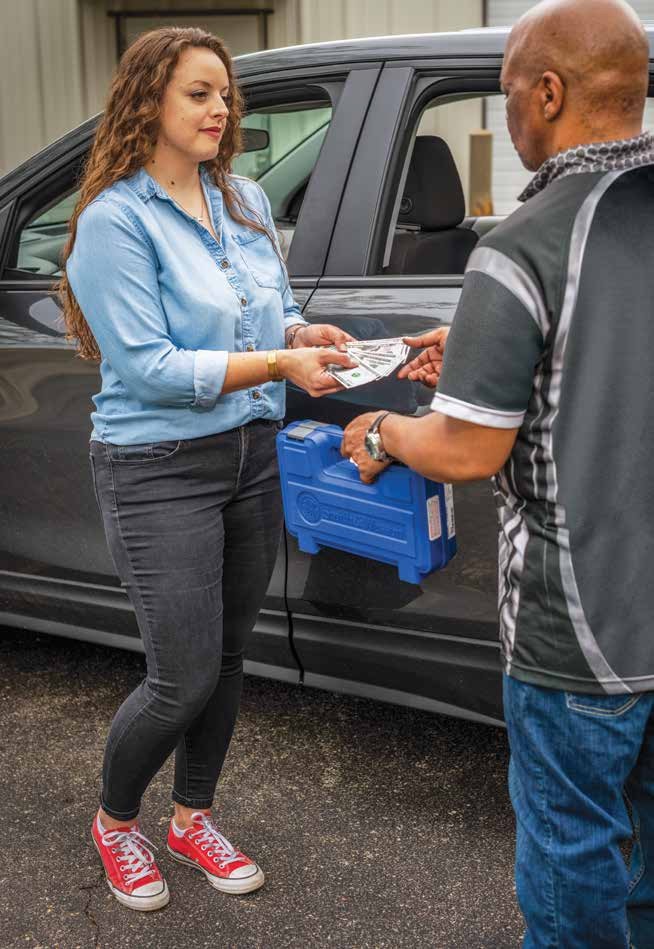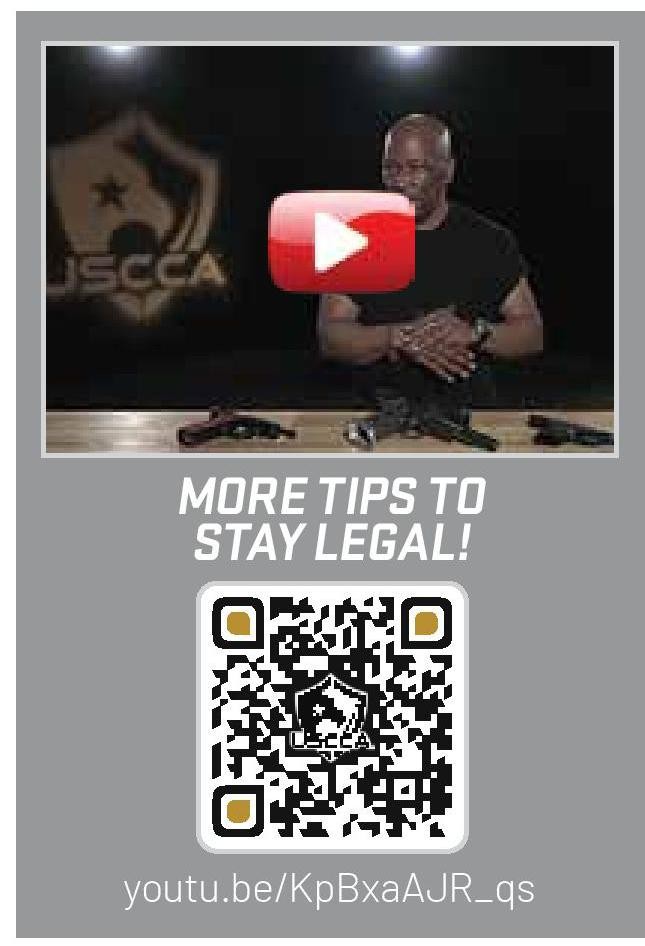PRIVATE GUN SALES
CHALLENGES AND SOLUTIONS
CHIP EBERHART
LEGALLY ARMED CITIZEN | IT’S JUST THE LAW | BALLISTIC BASICS | RETURN FIRE CITY LIMITS

STAY SMART
Private gun sales are legal in many jurisdictions, but as with everything else in the world of self-defense, you need to know your local laws.
“ IF YOU, AS A PRIVATE CITIZEN, WANT TO SELL OR GIFT YOUR GUN TO, OR RECEIVE A GUN FROM, A CITIZEN IN ANOTHER STATE, THE BEST WAY TO DO THAT IS THROUGH THE ASSISTANCE OF AN FFL. ”
What may appear to be a simple exchange could get you into a lot of trouble.
For the majority of gun owners, a firearm is nothing more than a tool. When we buy or sell a tool, we don’t give it much more thought beyond whether we are getting the price we want. Firearms sales involve a bit more, but the good news is there are fewer federal laws on private sales than on commercial sales. However, if you happen to violate the bit of federal law that does govern private sales, you could lose not only your Second Amendment rights but also your freedom and liberty. You can utilize the USCCA Reciprocity & Gun Laws Map at USCCA.com/travel to stay up to date on federal and local laws.
THE BASICS
If you commonly sell or buy guns, the Bureau of Alcohol Tobacco, Firearms and Explosives suggests you apply to become a Federal Firearms Licensee. This requires a background check, your promise to keep good records and a few other terms that are beyond the scope of this column. But under certain circumstances, becoming an FFL can be quite lucrative.
FFLs are able to receive firearms from manufacturers and wholesalers around the country. FFLs can transfer — as in deliver — firearms to private citizens in their home states or to other FFLs out of state utilizing Form 4473.
CROSSING STATE LINES
Depending on where you live, you may be legally allowed to transfer a firearm to another resident of your state without involving either state or federal government. Everything changes as soon as you’re going from a resident of one state to a resident of another. There is a lot of old information, new information and misinformation floating around with regard to transferring a firearm to someone who resides in a state other than yours. If you, as a private citizen, want to sell or gift your gun to, or receive a gun from, a citizen in another state, the best way to do that is through the assistance of an FFL. This is not only the safest way to legally transfer a firearm from one citizen to another but also the law.
Again, there are a lot of “Well, I know it used to be...” stories online and at local gun clubs, but if the transfer crosses state lines, you will have to bring FFLs and Form 4473s into the equation.

Speaking of which, a lot of people think Form 4473 is firearms registration. It’s not. The 4473 is the mandated federal form for recording firearms transfers, and that 4473 doesn’t get sent to your local police, state police or even the ATF. Like your tax documents, Form 4473 is protected by the Privacy Act of 1974. There are very rare instances where anyone would ever see it. If a firearm were found at a crime scene, police would contact the manufacturer to identify to which distributor the serial number was transferred. Once the distributor identifies the retailer, law enforcement would contact that FFL to review who purchased the gun in question. The ATF requires that an FFL maintain 4473s for not less than 20 years.
IN-STATE PRIVATE TRANSFERS
Individual sellers living in California, Colorado, Nevada, New Jersey, Washington or Illinois (as of 2022) will need to sell through a dealer. In most instances, the dealer may collect a fee, and the FFL holder can decline to facilitate the transfer. Why might an FFL decline a transfer? Seasoned FFLs develop a certain sixth sense, and there are some key tells that someone may be attempting what’s known as a “straw purchase” — when someone who is eligible to buy a firearm attempts to purchase a firearm for someone who is not eligible.
Even if you live in a state that doesn’t require the use of an FFL for the transfer of a firearm, it’s your duty to be just as diligent as an FFL. Whenever you sell a firearm to an individual, it’s your responsibility to ensure the buyer isn’t prohibited from possessing it. Prohibited persons include felons, habitual drug users, minors, the mentally ill, those under certain court orders, and those that have been arrested for domestic violence.
Even if you’re not legally obligated, you’re morally obligated to make sure that you’re not placing a lethal weapon in a prohibited person’s hands. Laws regarding firearms sales, possession and reciprocity change often, so keep that USCCA Laws App handy. Because to be a truly responsibly armed American, you must take the time to review and understand the laws in your state.